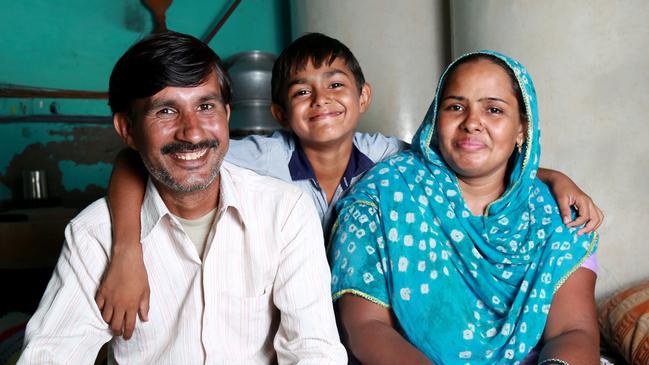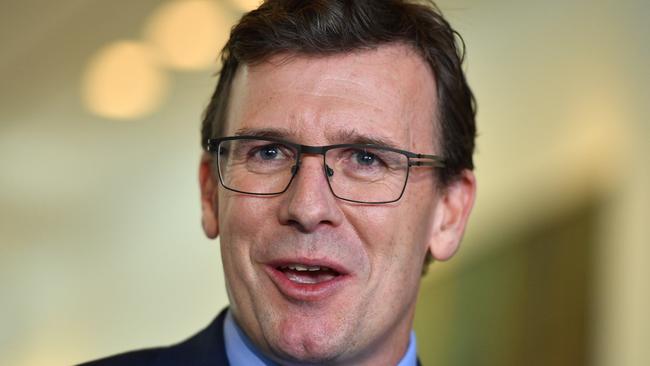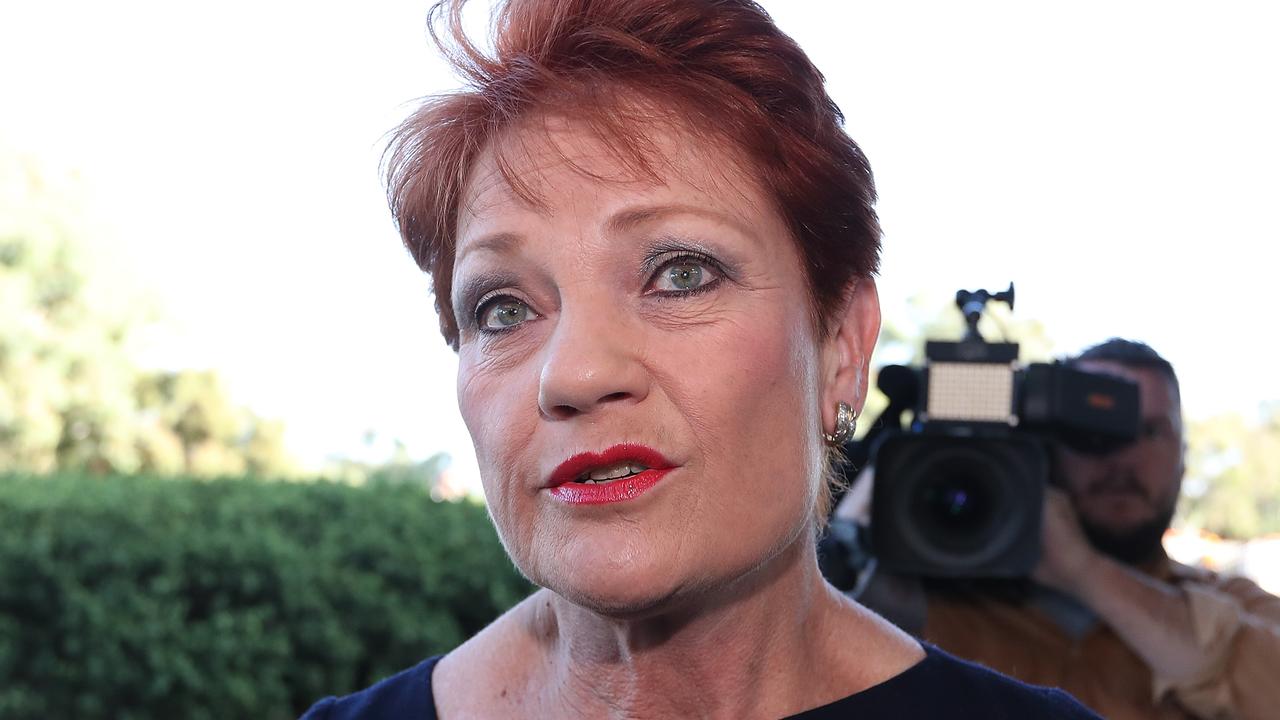New incentives will be offered to migrants who settle outside cities
Brendan O’Connor says the plan to move migrants to smaller states fails to consider the implications of immigration rates for Australian workers.

Labor employment spokesman Brendan O’Connor has dismissed the government’s plan to move migrants to smaller states and regional areas as a “thought bubble” which fails to consider the implications of current immigration rates for Australian workers.
Minister for Cities, Urban Infrastructure and Population Alan Tudge has this afternoon flagged key planks of the government’s soon-to-be-released population policy, including fundamental structural changes to federal and state government management of population distribution and infrastructure planning, as revealed in today’s Australian.
New migrants will be forced to live outside Sydney, Melbourne and southeast Queensland for up to five years, and the government will consider funding fast-rail projects to tackle urban congestion caused by the population growth.
Mr O’Connor called on the government to consider that there are currently 1.6 million temporary work visa holders in Australia.
“At the same time, we have over 700,000 unemployed Australians, and we have 1.1m Australians looking for more work,” he said.
“That is over 1.8m Australians looking for any work, or looking for more work, and yet we watch the government continue to allow the explosion of temporary visa holders to 1.6m.
“So firstly, before we look at this plan, this recent thought bubble by the thought bubble boy Scott Morrison, we should consider what we’re doing with these temporary visa levels. “Clearly, when you look at youth unemployment in this country, it’s just over 13 per cent.
“We have too few young workers getting into the
labour market.
“One of the reasons for that is they are being displaced, or indeed superseded by the overuse of some of the temporary visa holder categories.
“When we’re examining congestion, when we’re examining job opportunities for the underemployed or unemployed in this country, we need to consider whether in fact the government has properly ensured that we use these visas properly, and clearly, with 1.6m visa holders there is a real strain on opportunities for unemployed Australians and underemployed Australians to get into the labour market, and the government needs to do something.”
Mr O’Connor claimed Prime Minister Scott Morrison “likes the idea that this drives wages down”.
“If you have an oversupply in certain areas, you drive down wages,” he said.
“That’s why this government has presided over the lowest wage growth in five years, certainly one of the reasons for that is indeed the misuse, overuse and abuse of temporary work visas. “It’s unfair to the visa holders who are exploited, it’s unfair to the local worker who misses out.
“In fact, Scott Morrison’s history is clear: he voted against labour market testing when it was introduced in the last year of the last Labor government. He’s on the record opposing any restrictions on temporary visas and skilled visas.
“Indeed as shadow minister for immigration he wanted to open up the 457 visa arrangements to make them easier, not harder, to access. So he looks overseas first and denies local workers their opportunity.
“As Prime Minister, he is a hypocrite if indeed he continues to argue he is concerned about congestion and infrastructure strain, when he turns his back on Australian workers who can’t find enough work.”
Mr O’Connor said Labor would introduce proper labour market testing if elected.
“It is true that there are also other visa holders with limited work rights that have every right to work here, but we need to ensure that they’re not here for the purposes of just working alone,” he said.
“For example, if they are student visas and they’re getting student visas, then surely they’re here to study first, not to work first.”
From the archives
Labor has this morning drawn attention to utterances Prime Minister Scott Morrison made in 2010 and 2011, opposing a very similar proposal to Mr Tudge’s to encourage migrants to move to regional areas which was being proposed by the Gillard government at the time.
“The government says it is not about immigration and they want to put out this false hope that they can move all these people around the country differently,” Mr Morrison told Lateline in July 2010, when he held the productivity and population portfolio.
“Well those who are coming into the country, less than 10 per cent of them currently go out and settle in regional areas and rural areas.
“So to hold out some false hope that this problem’s going to be solved because a population minister is going to fantastically move people around like has never been done before in our history, is I think unfair to the Australian people to suggest that that is realistic option, certainly in the short or medium term.
“Long term I think there are still real doubts. The history of settlement over centuries means that people will come and gravitate to areas where there is population.”
Mr Morrison made similar comments during a press conference two days later.
“What we are trying to do is control and get back to a sustainable level the population growth rate. The population growth rate is what puts pressure on our cities around the country,” he said.
“Remember more than nine out of ten people who come into Australia end up in the cities.
“The government can talk to the cows come home about getting people into the regions and we would pursue policies similar to that but we cannot be unrealistic and disingenuous with the Australian people by suggesting that is a substitute for easing the population pressure on those in Western Sydney and other parts of the country.
“It is just simply not telling the truth.”
During a press conference in May 2011, Mr Morrison accused the Gillard government of proposing a policy which “doesn’t even really talk about migration and population levels and what they might be and what the rate of growth might be.”
“It holds out unrealistic promises that all of this can be turned around by everybody moving to regional areas,” he said.
“We simply know, through centuries of migration experience, that that simply isn’t how it happens.
“There is a reality about where people settle that’s difficult to shift and you need to address those realities in your migration and population policies.”
Perks for migrants who go rural
Mr Tudge said the government was trying to address an Australian population which is growing by the size of Canberra every year, with three quarters of new migrants settling in Melbourne, Sydney and southeast Queensland.
“What we’re trying to do it get a better distribution of that growth so it can help some of those smaller states and some of the regional areas, which are crying out for more people, and take a bit of that congestion pressure off,” Mr Tudge told ABC radio.
“Now one of the tools there is through migration, because nearly all the growth is due to migration, so if we can get even a few more percentage points of the migrants going to some of those states or into the regions rather than coming to Melbourne or Sydney, then that obviously achieves our objectives.
“We could do that through a combination of incentives and some conditions.
“We haven’t outlined the exact details here yet, but it’s a relatively straightforward thing to be able to provide incentives for people to go to some of the regional areas or some of the smaller states.”

Mr Tudge said there were already some incentives in place through a points system, which gives additional points to migrants who settle in smaller states or regional areas.
“So we’ll be looking at things like that,” he said.
“You can also put conditions on people’s visas as well to stay in a particular area for at least a few years, and in that time you hope that they make it their home, that they settle.”
Asked whether the government would revoke visas if people left smaller states or regional areas, Mr Tudge said the government was yet to outline the precise details of its policy.
“We put conditions on all sorts of things,” he said.
“Even today, if you’re coming here on a work visa then you obviously have a condition about being sponsored by that particular employer.
“Nearly every visa has conditions attached to it, so it wouldn’t be unusual to have a geographic attachment to a particular visa.”
Currently, 25 per cent of migration to Australia is sponsored by employers, while 30 per cent comes under family reunion provisions.
Asked whether the geographic limitations could apply to people in those categories, Mr Tudge said 65 per cent of Melbourne’s growth last year was due to migration.
“So you only need to take a relatively small proportion of that growth and place it into one of the smaller centres or one of the smaller states and you can make a real difference to Melbourne, so that’s what we’re looking at,” he said.
“You point out quite correctly that we don’t want to interfere with the employer-sponsored migration, because when a business can’t find an Australian to do the job, then we want to enable them to sponsor a person into the country.
“About 45 per cent of our visas aren’t attached to a geographical location as such, and therefore there are opportunities to provide those incentives and encourage them to reside elsewhere.”
Mr Tudge said the government wanted to encourage more refugees to settle in the regions.
“We already have some of the humanitarian intake go to the regional areas, and sometimes they do phenomenally well.
“At the moment nearly all of the humanitarian intake comes into Melbourne and Sydney, and meanwhile though we actually have places right around Australia including in rural areas which are crying out for workers, so there may well be opportunities to have further numbers of the humanitarian intake go to those regional areas where there is local community support for that to occur, and that’s the important thing, and obviously you do have to have the services in place to support that to occur as well.”
Mr Tudge said a combination of increases migration since Kevin Rudd became prime minister in 2007, and a lack of infrastructure, had contributed to congestion in major cities.
“In 2007 there was an unexpected step change increase in migration intake by Kevin Rudd, and that means that our population growth has been well above what the projections are, and second, you had a period a decade or more ago when we didn’t have the level of investment in the infrastructure required even for the expected growth, let alone for the supercharged population growth, and so we’re in a bit of a catch-up phase today,” he said.
“Now I think we are rapidly catching up, particularly in a place like Sydney.
“There’s infrastructure being built right across the city right now, supported by the federal government, and in a couple of years’ time that city will flow much, much better, but what we need importantly in the future is a better planning mechanism which does combine that population planning with the infrastructure and the services planning together, and that’s also what I’m outlining today as well.”
Mr Tudge said the government was currently investigating the business cases for three fast rail projects, including Sydney to Newcastle and Melbourne to Shepparton.
“Now if those were enacted, of course they would support the economic growth of those regional areas and take a bit of pressure off Melbourne and Sydney respectively too,” he said.
“We’ve got three good business cases going on at the moment and we’ll get those back early next year.
“I should say here in Victoria the state Opposition Leader Matthew Guy has put a very bold plan here on the agenda with four fast rail corridors to be built here if he were elected, and that would slash the time to get to places like Bendigo and Ballarat, to Shepparton, to Traralgon, so that you could actually reasonably reside in those places and commute each day to Melbourne. I think that would be a game changer.”
Mr Tudge dismissed a letter from Bill Shorten to Scott Morrison over the weekend, which called for a joint-party population blueprint to tackle future immigration rates, infrastructure shortfalls and quality-of-life concerns.
“I think the Prime Minister in part dismissed it because if the Leader of the Opposition was serious about this, he actually would have sat down with the Prime Minister rather than writing him a letter and putting the letter in the newspaper before even speaking to the Prime Minister,” he said.
“Now I’m laying out a plan today as to how we’re thinking about congestion, how we’re thinking about getting a better distribution of population across the country.
“We would welcome the Leader of the Opposition’s support for this plan.”
Mr Tudge said he was not convinced that the government needed an immigration target.
“I think what we do need is controlled population growth, and we do need to set out forward projections of what that might look like and where that might be, and have the infrastructure to match it, and ideally the infrastructure built in front of that population growth rather than behind it, which is what we’ve unfortunately seen in the past,” he said.
Tudge’s migrant plan ‘lacks detail’
Labor frontbencer Jenny McAllister said he government’s plan to move migrants to smaller states and regional areas was merely a “generalised discussion” and lacks detail.
“It’s not really a plan yet, is it? I mean this is just a sort of generalised discussion, and I think that’s where the flaws lie,” Senator McAllister told Sky News.
“I mean we don’t really even know if Mr Tudge is talking about temporary migrants, is he talking about permanent migrants? What is he actually talking about?
“Our general view is that migration has been very good for Australia. We are proud of our multicultural heritage and we’re acutely conscious of the economic benefits of migration for Australia.
“We’re also open to a conversation about how to best ensure that migration benefits our society and our economy, and that might be a discussion about where people go, but the real issue surely is about jobs.
“We’ve got nearly 1.6 million people here on temporary visas that include work rights. That’s probably too high.
“We’ve got very, very high unemployment already in the regions. Surely the question is: what are we doing to train Australians for the jobs that are out there? If there are jobs that can be filled by Australians with a bit of training, that’s the path we want to go down.”
Senator McAllister said Labor wanted to see a national authority constantly examining the labour market to ensure Australians were trained to fill skill shortages.
“If it is possible to train an Australian to do that job, we ought not be importing people to do that work,” Labor’s assistant spokeswoman on families and communities said.
“Is this why Labor, or elements or your party were critical of TPP and didn’t want your party to back it, which you have done.
“Our general position is that there ought to be labour market testing for any kind of migration, whether permanent or temporary.
“We need to be examining how the labour market’s working, and again, if there are Australians that could be trained to do the job, let’s train them up. That’s our obligation to our citizens.”
Asked why Labor was supporting the trans-Pacific partnership, which does not does not require labour market testing for all kinds of migration, Senator McAllister said the opposition would have preferred a different set of terms for the deal.
“There’s no dispute about that. Right across the party our view is that Australia workers ought to be the priority, and we don’t think that the government has done that in their negotiations, but on balance the party has decided to provide support for the TPP,” the member of Labor’s Socialist Left faction said.
“I’ll say this though: in government we would have a very different approach to skills.
“We think there ought to be an investment in training, and there ought to be a conversation between employers, between community, between government about how we skill Australians up to do those jobs.”




